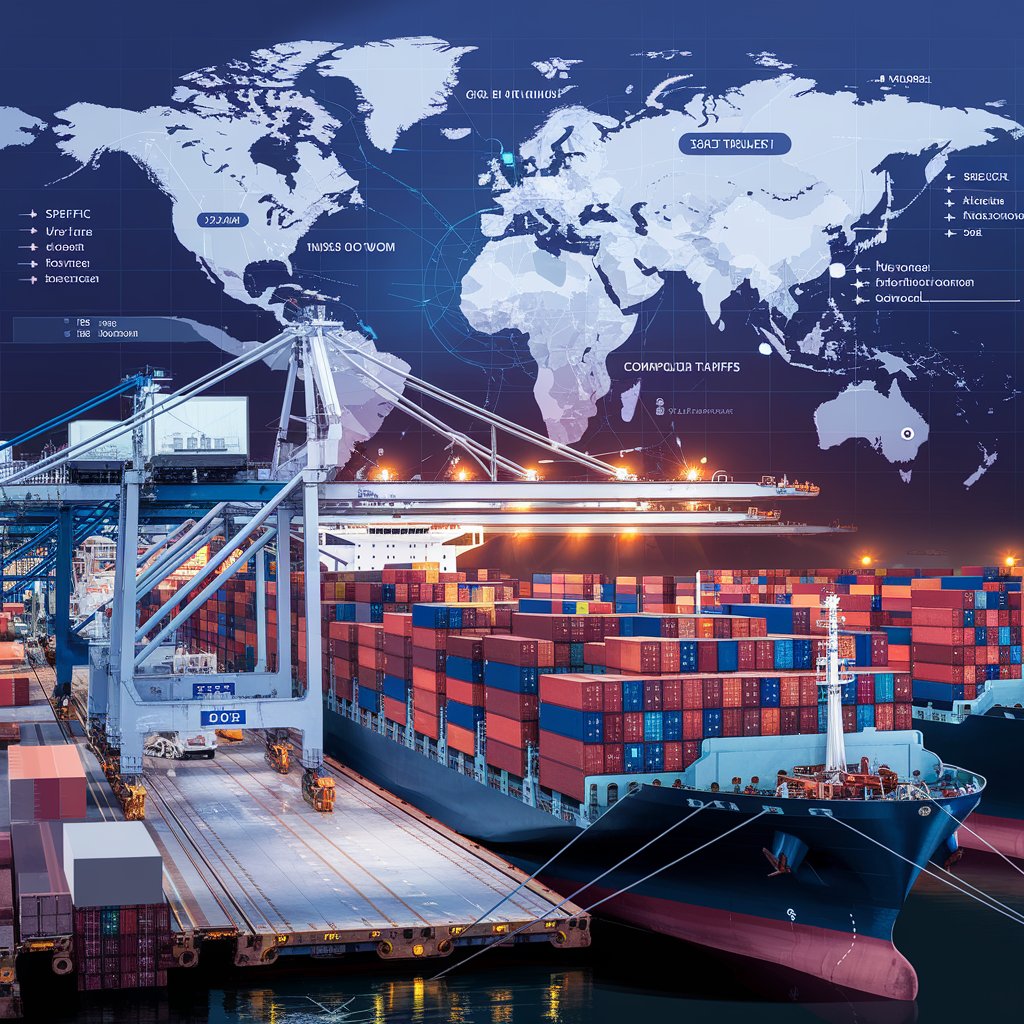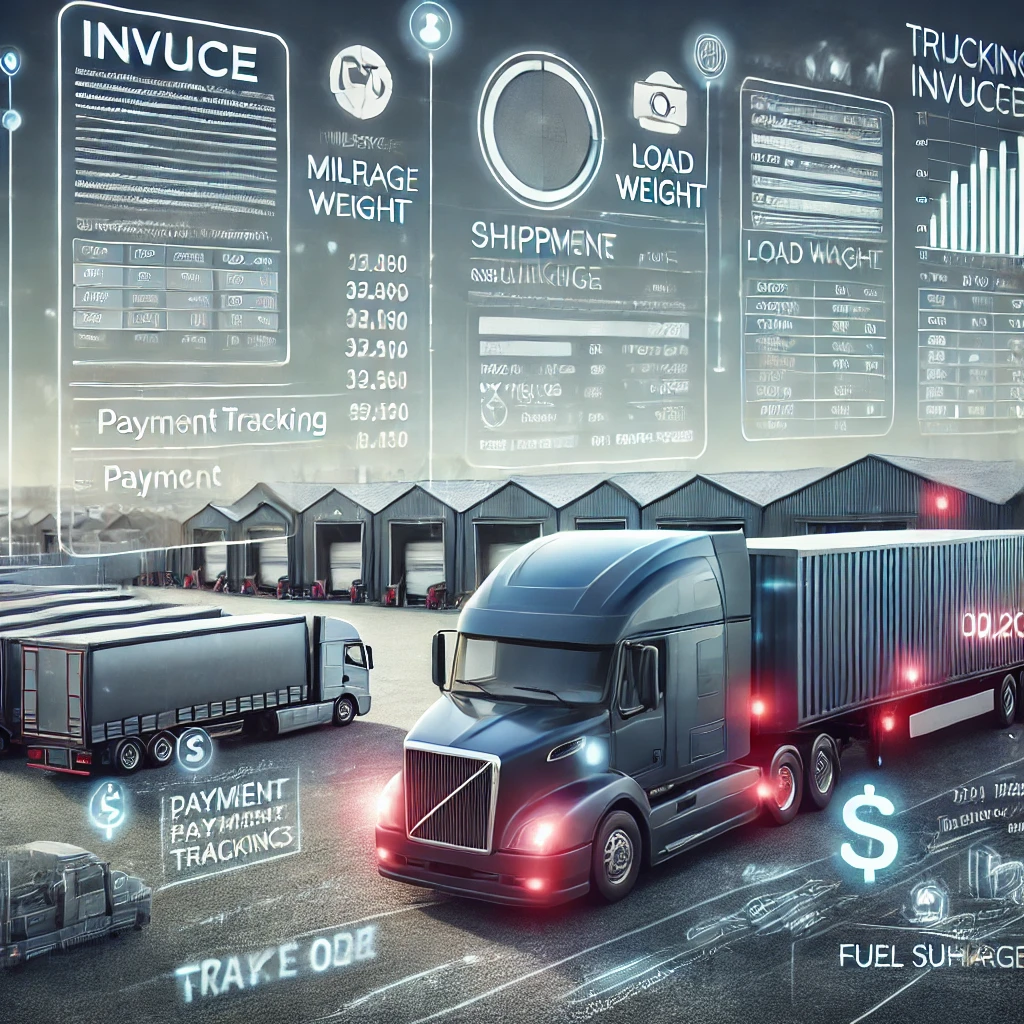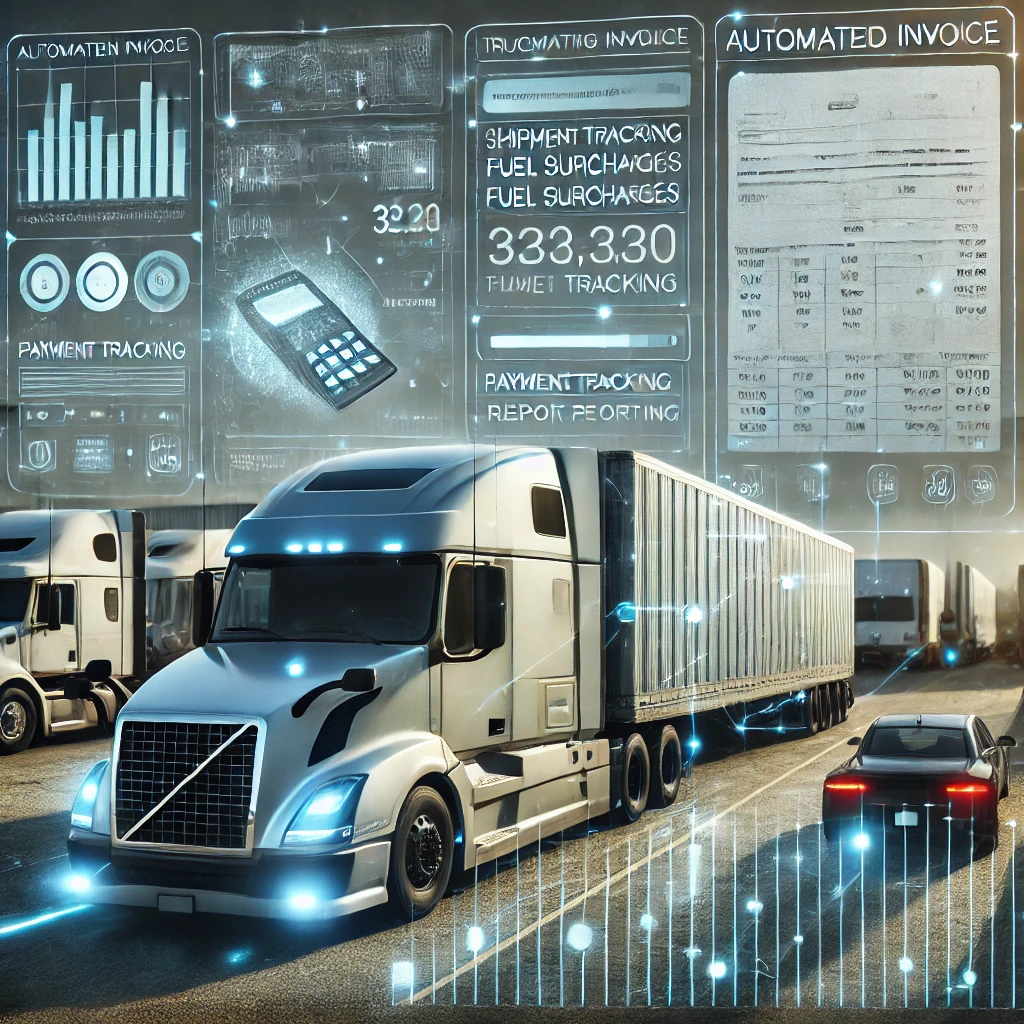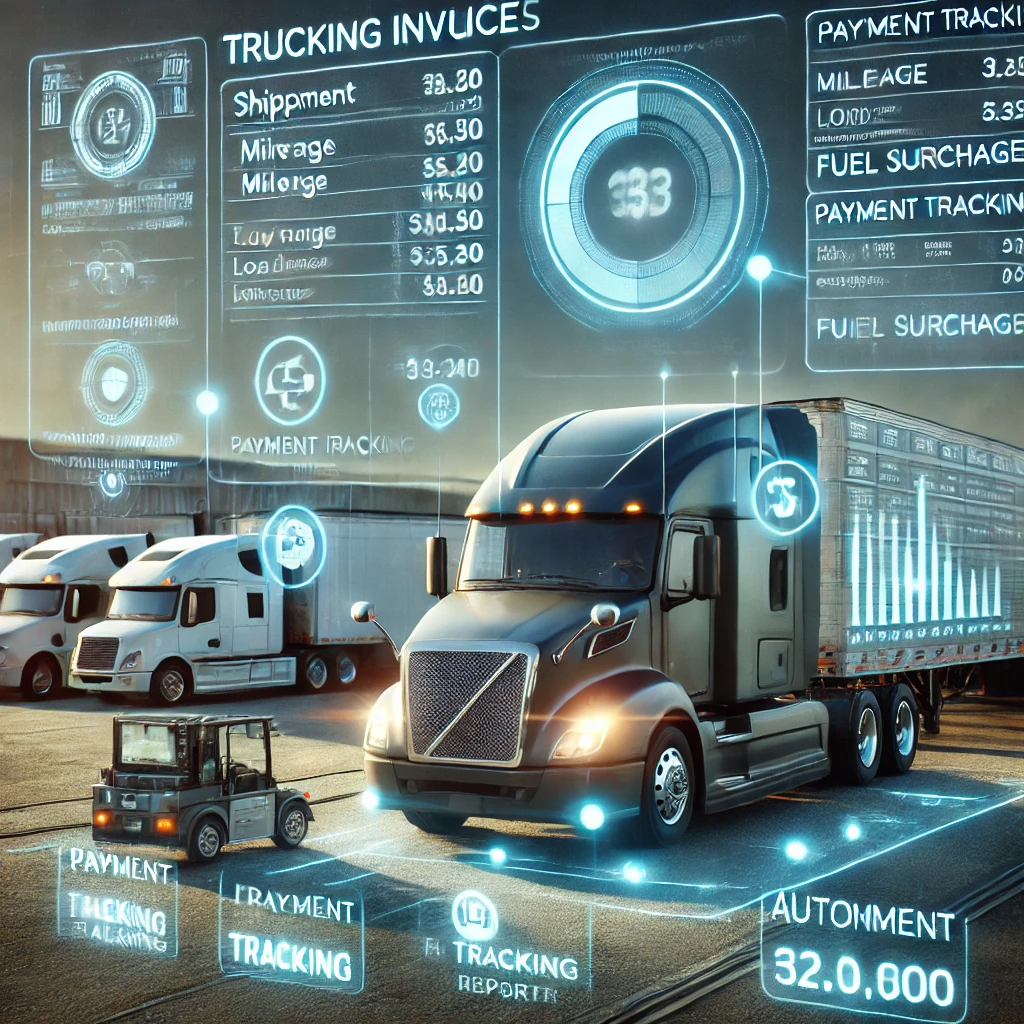Trucking Invoices: Streamlining Billing Processes in the Transportation Industry

Understanding Trucking Invoices
A trucking invoice is a document that itemizes and bills for transportation services provided by a trucking company. These invoices typically include details such as:
- Shipment information (origin, destination, date)
- Load details (weight, dimensions, type of goods)
- Mileage
- Fuel surcharges
- Additional fees (e.g., detention time, lumper fees)
- Payment terms
Accurate and timely generation of these invoices is critical for trucking companies of all sizes, from owner-operators to large fleets.
The Importance of Efficient Invoicing in Trucking
Efficient invoicing processes offer several benefits to trucking companies:
- Improved Cash Flow: Faster invoicing leads to quicker payments.
- Reduced Errors: Automated systems minimize manual data entry mistakes.
- Time Savings: Automation frees up staff to focus on core business activities.
- Better Customer Relations: Accurate, professional invoices enhance your company’s image.
- Easier Accounting: Streamlined invoicing simplifies bookkeeping and tax preparation.

Trucking Invoice Software: A Game-Changer for the Industry
Specialized trucking invoice software has emerged as a powerful tool for addressing the unique billing challenges in the transportation sector. These solutions offer a range of features designed to streamline the invoicing process:
Key Features of Trucking Invoice Software:
- Automated Invoice Generation: Create invoices automatically based on completed loads.
- Customizable Templates: Design professional, branded invoice templates.
- Integration with Dispatch Systems: Pull load details directly from dispatch software.
- Electronic Data Interchange (EDI): Send invoices directly to customers’ systems.
- Payment Tracking: Monitor outstanding invoices and payment status.
- Reporting and Analytics: Generate financial reports for better decision-making.

Choosing the Right Trucking Invoicing Software
When selecting invoicing software for your trucking business, consider the following factors:
- Scalability: Ensure the software can grow with your business.
- Integration Capabilities: Look for solutions that integrate with your existing systems (e.g., dispatch, accounting software).
- Ease of Use: Opt for user-friendly interfaces that require minimal training.
- Customization: Choose software that allows you to tailor invoices to your specific needs.
- Mobile Access: Consider solutions with mobile apps for on-the-go invoicing.
- Customer Support: Evaluate the level of support provided by the software vendor.
- Cost: Weigh the price against the features and potential time savings.
Implementing Trucking Invoice Software: Best Practices
To ensure a smooth transition to automated invoicing:
- Assess Your Needs: Identify your specific invoicing requirements and pain points.
- Involve Key Stakeholders: Get input from accounting, dispatch, and management teams.
- Data Migration: Plan for the transfer of existing customer and invoice data.
- Training: Provide comprehensive training for all users of the new system.
- Start with a Pilot: Test the software with a small group before full implementation.
- Regular Review: Continuously evaluate the system’s performance and make adjustments as needed.

Beyond Invoicing: Comprehensive Trucking Accounting Software
While invoicing is a crucial component of financial management, many trucking companies benefit from more comprehensive accounting solutions. Trucking accounting software often includes invoicing features along with:
- Expense tracking
- Fuel tax reporting (IFTA)
- Driver payroll
- Asset management
- Financial reporting
These all-in-one solutions can provide a more holistic approach to financial management for trucking companies.
The Future of Trucking Invoices and Billing
As technology continues to evolve, so do the possibilities for trucking invoices and billing processes. Here are some trends shaping the future:
- Artificial Intelligence: AI-powered systems for predicting cash flow and automating collections.
- Blockchain Technology: Enhanced security and transparency in billing and payments.
- Real-Time Invoicing: Instant invoice generation upon load completion.
- Advanced Analytics: More sophisticated financial insights and forecasting capabilities.
- Integration with IoT: Automated invoicing based on real-time tracking data from trucks and cargo.
Conclusion: Driving Financial Success with Efficient Trucking Invoices
In the competitive world of trucking and logistics, efficient invoicing is not just about getting paid—it’s about optimizing your entire financial operation. By leveraging modern trucking invoice software and embracing automated billing processes, trucking companies can significantly improve their cash flow, reduce administrative burdens, and gain valuable insights into their financial performance.
Whether you’re an owner-operator looking to simplify your billing process or a large fleet seeking to streamline your entire accounting operation, investing in the right invoicing solution can pay dividends in time savings, accuracy, and professional image.
As you evaluate your options for trucking invoice software, focus on finding a solution that not only meets your current needs but also has the flexibility to adapt to the evolving landscape of the transportation industry. With the right tools and processes in place, you can turn your invoicing system from a necessary chore into a strategic asset, driving your trucking business towards greater financial success and stability.
